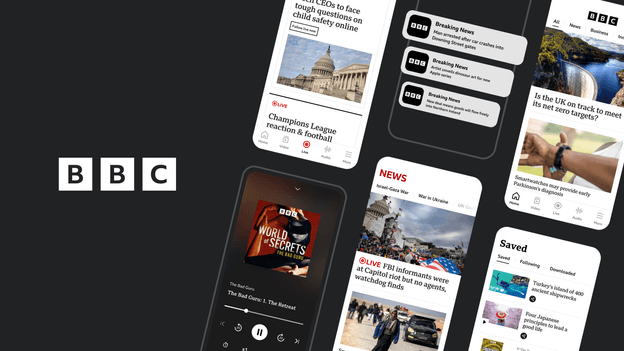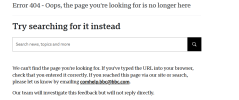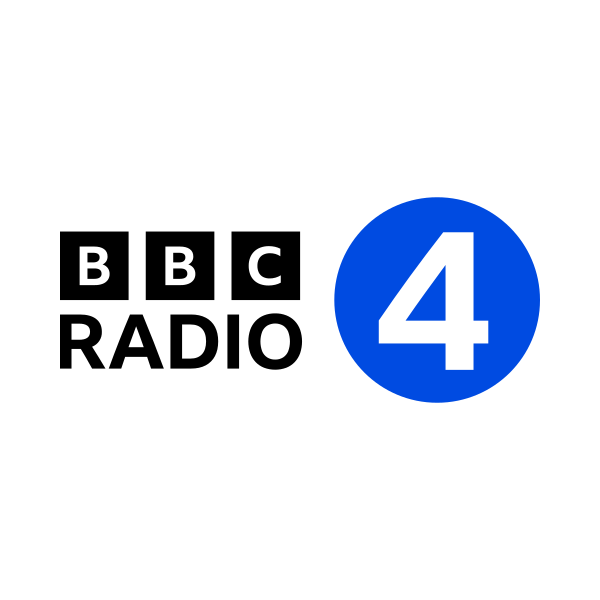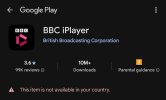BBC Sounds app stopped working today for users outside the UK and it suggested installing the BBC: World News & Stories app instead. Did that but when I run it this is all that I get - screen is blank other than the yellow exclamation warning (?) icon. No error messages or anything else indicating what's wrong.

Anyone else tried it and had more success?
(For the moment I guess I'll have to just use the website but even that is also proving to be flakey...)

Anyone else tried it and had more success?
(For the moment I guess I'll have to just use the website but even that is also proving to be flakey...)
Attachments
Last edited:




